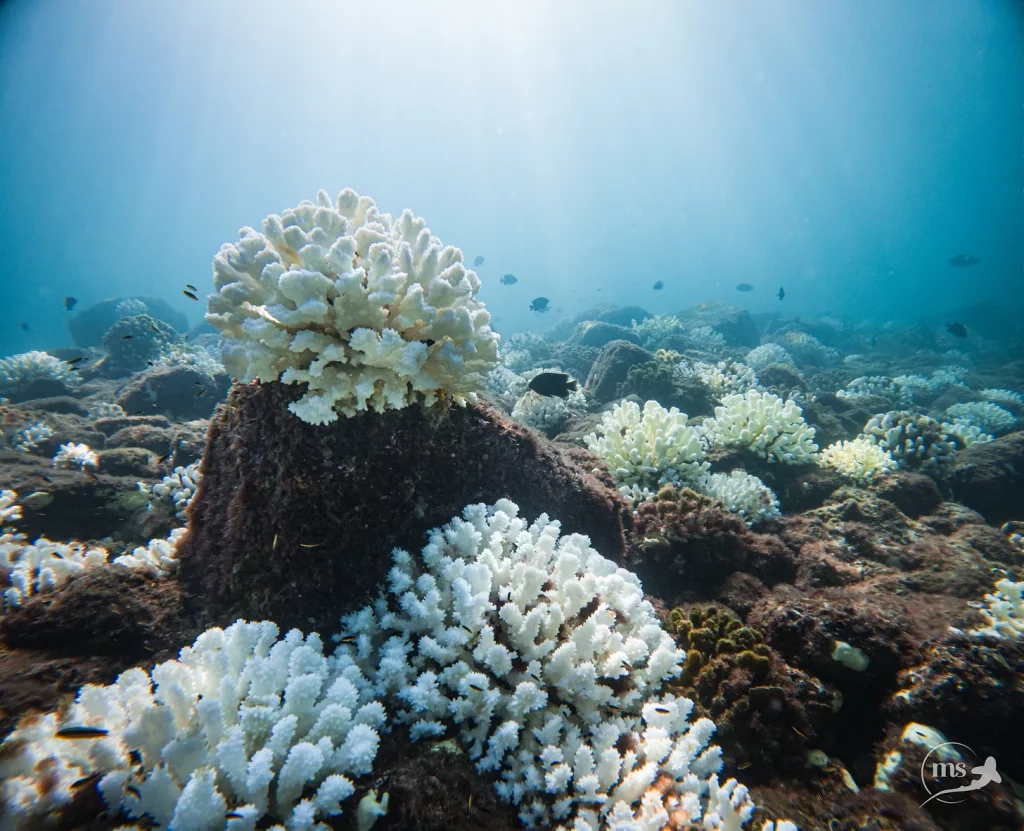
For the first time, November has been declared Coral Bleaching Awareness Month. This year, coral reefs worldwide are facing a particularly hard one, mainly due to El Niño meteorological phenomenon. During El Niño, the Pacific Ocean is much warmer, affecting global weather patterns. You probably have noticed the water in the bay is much warmer compared to other years. Though El Niño is a natural phenomenon, on a warmer planet it can have stronger effects.
But how does coral bleaching relate? Bleaching is a stress response caused by different factors, one of them is an increase in water temperature. Corals live in symbiosis with a unicellular photosynthetic organism known as zooxanthella. Zooxanthellae are dinoflagellates from the genus Symbiodinium that live within the coral tissue. In this intimate relationship, zooxanthellae contribute to corals’ nutrition, providing them with the products of photosynthesis. In exchange, they get protection and nutrients. Zooxanthellae can provide up to 90 % of the corals´ energy needs and without them, their growth would be too slow to create reef structures. Because of their photosynthetic pigments, Zooxanthellae are also responsible for the corals´ colors.
Under environmental stress, corals expel their partners. Without them, they lose their color, and we see their white skeletal structure through their transparent tissues. Besides losing their color, corals lose their main energy source. If the conditions go back to normal soon, zooxanthellae return, and corals recover. If the stress lasts too long, the corals starve to death.
Coral bleaching has complex causes, climate change is a main contributor to it. Healthier reefs have better chances to survive. Water quality is vital for coral reefs’ health: less pollution, less trash in the ocean, reef-safe sun protection, reducing CO2 emissions, fishing regulations to ensure herbivores (parrotfish, surgeon fish…) can control algae growth… All of these and more, are necessary actions to preserve our reefs, not just because it would be a crime to lose their beauty, but because they have vital functions in our ocean: if reefs go, we go.
More on this coral bleaching awareness month here. María Rodriguez-Salinas maria878@hotmail.com, Instagram: maria_salinas_scuba